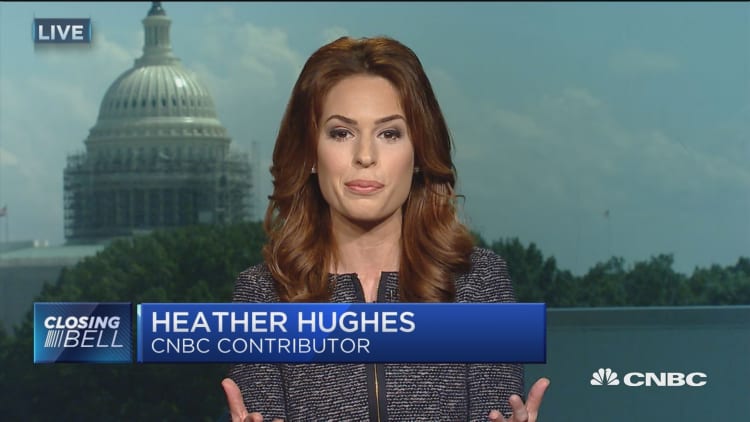
U.S. stocks closed higher for the fourth day in a row Friday, and trader Keith Bliss thinks they can still climb a little bit higher from here.
"This isn't any kind of a dead-cat bounce when you look at the strength of the move," the senior vice president for Cuttone & Company said in an interview with CNBC's "Closing Bell" Friday.
The closed above the psychologically key 2,100 level and gained 3.22 percent for the week, its best since November. The Dow Jones industrial average gained 2.15 percent on the week, also its best week since November.
The major averages have recovered most of their losses since the U.K. voted to leave the European Union last week.
The moves are really about what's happening in the bond markets around the world, with it not being a "lower for longer" story but a "negative forever" type of story, Bliss said.
"Money is going to chase into the best house in a bad neighborhood in search of yield, in search of safety, and that is certainly U.S. equities," he said.
Heather Hughes, vice president of SunAmerica Funds, agrees.
"That trend will continue here in the U.S. in terms of the defensive nature, the flight to quality, flight to safety and the thirst for yield," she told "Closing Bell."

For independent investment consultant David Darst, it all comes down to second-half earnings. He wants to see corporations talking about a better outlook for the rest of the year.
"If we can get earnings, you can see the market lift. But selectivity is called for," Darst said.
That means investors should be careful chasing highly valued value stocks, he said. He would look at some of the beaten-up biotech stocks that are selling for 12 to 13 times earnings.
He'd also take a little off the table on gold, which has had a big run up, and "let things calm down."
— CNBC's Evelyn Cheng contributed to this report.


